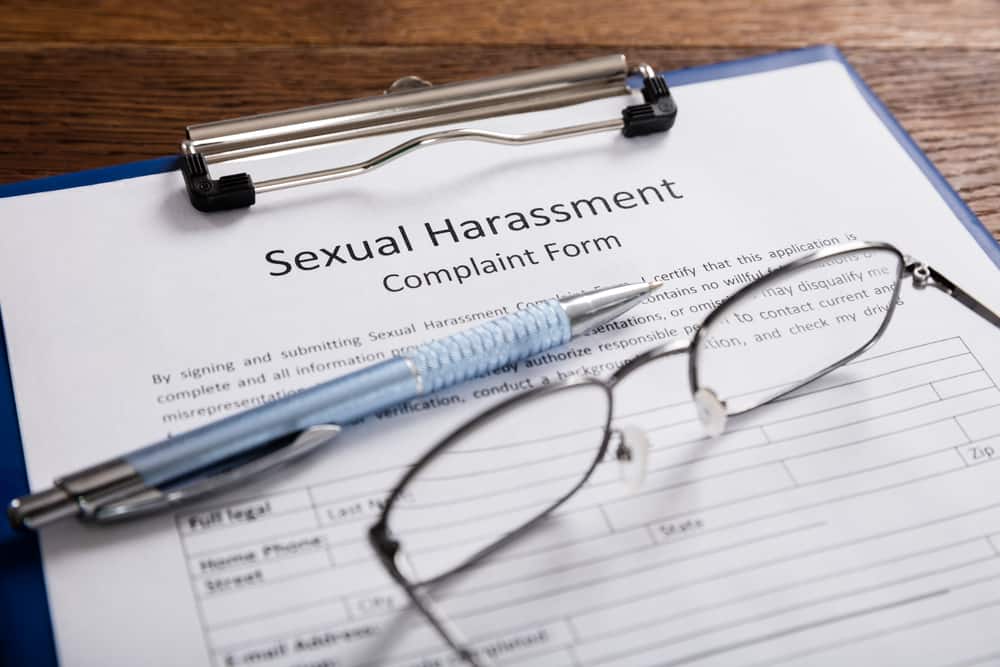Alabama has established itself as having some of the most restrictive abortion laws in the United States. Following the overturning of Roe v. Wade, Alabama’s legal stance on abortion has been a topic of heated debate and discussion nationwide.
Alabama’s abortion law, outlined in Section 26-23H-4 of the Code of Alabama, prohibits all abortions unless it is essential to prevent a serious health risk to the pregnant woman. Notably, the law does not provide exceptions for cases of rape or incest. Furthermore, patients seeking an abortion must undergo state-directed counseling designed to discourage them from proceeding with the abortion and wait 48 hours before the procedure can be provided.
This rigid legal framework surrounding abortions in Alabama has sparked conversations about reproductive rights and the contentious nature of the issue among various communities. As the situation evolves, understanding the intricacies of Alabama’s abortion law is crucial to stay informed and engaged in the ongoing debate.
Alabama Abortion Law Overview
Human Life Protection Act
In 2019, Alabama legislators passed the Human Life Protection Act, which bans abortion in the state except under specific circumstances. Wide margins in both the Senate and the House approved the law.
Serious Health Risk Exceptions
Under Section 26-23H-4 of the Code of Alabama, abortion is only allowed if necessary to prevent a serious health risk to the pregnant woman. The law does not make exceptions for cases of rape or incest.
Trigger Law
In May 2019, Gov. Kay Ivey signed a bill that banned nearly all abortions at any stage of pregnancy unless a woman’s life is threatened or there is a lethal fetal anomaly. This ban, however, was blocked by a federal judge. The restrictions was removed once the Supreme Court overturned Roe Vs, Wade.
Before an abortion can be performed in Alabama, the following restrictions apply:
- A patient must receive state-directed counseling that includes information designed to discourage the patient from having an abortion
- The patient must wait 48 hours before the procedure is provided
As of now, abortion remains a controversial and restricted issue in Alabama, with the Human Life Protection Act and other restrictions in place to limit access to the procedure.
Legal History and Context
Roe v. Wade and Viability
In the United States, the constitutional right to abortion was first recognized in the 1973 Supreme Court decision, Roe v. Wade. This landmark ruling acknowledged that the right to privacy under the 14th Amendment’s Due Process Clause encompassed a woman’s decision to have an abortion. However, the Court also granted states the ability to regulate abortions to protect the mother’s health and the fetus’s potential life.
The Roe v. Wade decision established the concept of “viability” as a critical point in determining restrictions on abortions. Viability refers to the point at which a fetus can survive outside the womb, generally around 24 weeks of pregnancy.
Dobbs v. Jackson Women’s Health Organization
On June 24, 2022, the landscape of abortion regulation in the United States shifted significantly with the Supreme Court decision in Dobbs v. Jackson Women’s Health Organization. In this case, the Court overturned Roe v. Wade, effectively returning the issue of abortion regulation to individual states.
Since the Dobbs v. Jackson Women’s Health Organization decision, the legal environment surrounding abortion has grown increasingly restrictive. Many states have implemented laws hostile to abortion rights, with Alabama enacting one of the most restrictive abortion laws in recent American history.
Under Alabama’s abortion law, abortions are illegal unless there is a serious health risk to the mother. This law marks a departure from the viability standard established in Roe v. Wade, demonstrating the states’ newfound power to regulate abortion. As a result, legal challenges to abortion restrictions continue to be brought in nationwide courts.
National Implications

Comparison with Other States
Alabama’s abortion law has significant national implications, particularly in the context of its comparisons with other states’ abortion laws. After enforcing a total abortion ban on June 24, 2022, Alabama now has one of the strictest abortion laws in the country. This ban makes Alabama a focal point in the ongoing debate over reproductive rights across the United States.
In contrast, some neighboring states have less strict abortion laws but still impose various restrictions. For example, Mississippi has a 15-week gestational limit on abortions, while Louisiana requires a 24-hour waiting period and mandatory counseling before obtaining an abortion. Conversely, Tennessee has a 48-hour waiting period and mandates counseling before undergoing the procedure.
Moving toward the west, Texas has a 20-week gestational limit on abortions and enforces a 24-hour waiting period, along with mandatory counseling. Kentucky also imposes a 20-week gestational limit, in addition to a 24-hour waiting period and mandatory ultrasound.
Comparatively, Massachusetts, a state in the northeastern United States, has more lenient abortion laws. In Massachusetts, abortion is legal up to 24 weeks of gestation, and there are no waiting periods or mandatory counseling requirements.
The overview of these states’ abortion laws highlights that Alabama’s total ban on abortion distinguishes it from its neighbors and other states across the nation, emphasizing the significance of the state’s law in the discussion of reproductive rights. The differences in state laws also raise questions about the potential national impact of Alabama’s strict ban and whether other states might follow suit.
The following table summarizes the key aspects of abortion laws in these states:
| State | Gestational Limit | Waiting Period | Mandatory Counseling |
|---|---|---|---|
| Alabama | Total Ban | N/A | N/A |
| Mississippi | 15 weeks | None | No |
| Louisiana | None | 24 hours | Yes |
| Tennessee | None | 48 hours | Yes |
| Texas | 20 weeks | 24 hours | Yes |
| Kentucky | 20 weeks | 24 hours | Yes |
| Massachusetts | 24 weeks | None | No |
This section briefly compares Alabama’s abortion law with those of other states, including Mississippi, Louisiana, Tennessee, Texas, Kentucky, and Massachusetts. These comparisons illustrate the varying degrees of abortion restrictions across the United States and the potential national implications of Alabama’s strict abortion ban.
Abortion Restrictions and Regulations

Parental Notification
In Alabama, parental notification plays an important role in the abortion process for minors. The law requires informing a parent or legal guardian before a minor can access abortion services. This is in place to ensure that the decision-making process involves those who are legally responsible for the minor.
Mandatory Ultrasound
As part of Alabama’s abortion regulations, a mandatory ultrasound is required for all patients seeking an abortion. This regulation is in place to provide clear information about the pregnancy and confirm the gestational age of the fetus. A qualified medical professional must perform the ultrasound, and the images must be offered to the patient, though they can decline to view the images.
Waiting Period
Alabama’s abortion laws also include a mandated 48-hour waiting period following state-directed counseling. This counseling is designed to provide information that may discourage the patient from having an abortion. The waiting period is meant to allow time for the patient to consider their decision before proceeding with the abortion procedure.
Exceptions and Other Regulations
Despite the restrictive abortion laws in Alabama, there are cases in which abortions are allowed. Exceptions include when the mother’s life is threatened or in cases of a lethal fetal anomaly. Notably, Alabama does not provide exceptions for cases of rape or incest. The laws in place regarding abortion in Alabama aim to safeguard the unborn child and the mother’s health.
Effects on Abortion Providers and Patients
Abortion Clinics in Alabama
In Alabama, three abortion clinics provide care for patients seeking an abortion. These clinics have to follow strict state regulations, such as requiring patients to go through state-directed counseling, which includes information designed to discourage them from having an abortion, and a 48-hour waiting period before the procedure can occur.
As a result of the recent laws banning abortions at all stages of pregnancy, Alabama clinics have had to stop offering these services temporarily. This has led to a situation where patients who were expecting to obtain an abortion were turned away and left with limited options.
Impact on Women’s Access to Abortion
The Alabama abortion ban has caused significant challenges for women seeking access to abortion services. With the clinics halted, women may travel long distances to find a provider or seek care elsewhere. This often incurs high costs in both time and money, leaving some women unable to pursue their desired healthcare.
Furthermore, the law has a ripple effect on healthcare providers, as physicians and hospitals may face the risk of criminal charges and penalties for performing abortions. This has the potential to create a climate of fear among medical professionals, further restricting women’s access to necessary care.
Access to abortion services is also limited by the availability of providers and equipment, especially in rural counties where fewer resources may be available. For some women in Alabama, the passage of the fetal heartbeat law has made obtaining an abortion nearly impossible, cutting them off from a vital healthcare option.
In summary, the stringent Alabama abortion laws have directly impacted abortion providers and patients, restricting access to care and placing undue burdens on women seeking their reproductive rights.
Political Landscape and Public Opinion
Pro-Life and Pro-Choice Perspectives
Pro-life and pro-choice perspectives differ significantly in their support of abortion rights. Generally, pro-life advocates believe in the sanctity of life and that abortions should be illegal or restricted. In contrast, pro-choice advocates emphasize the importance of personal autonomy and the right to make decisions about one’s body, including the choice to have an abortion.
In Alabama, public opinion is divided, with some surveys showing that 58% of adults in the state say abortion should be illegal in all or most cases. However, this is not a unanimous opinion, as other residents hold pro-choice views.
Alabama Lawmakers and Legal Challenges
Alabama’s recent abortion law has been described as the most restrictive in the United States, banning nearly all abortions. Alabama Governor Kay Ivey signed the controversial bill into law in 2019, and it has faced legal challenges since its enactment.
The law includes the following provisions:
- Abortion is banned at all stages of pregnancy, with exceptions only for the mother’s health or if the unborn child has a medical condition deemed incompatible with life.
- Performing an abortion in Alabama is a felony, punishable by up to 99 years in prison for doctors involved.
- The law does not include exceptions for cases of rape or incest.
Alabama lawmakers who support this law argue that protecting the rights of the unborn child is their primary goal. They hope that the U.S. Supreme Court, with its conservative majority that includes Justice Brett Kavanaugh, will eventually hear a case that could challenge or overturn the landmark decision in Roe V Wade that legalized abortion in the United States.
Critics of the law argue that it infringes on women’s privacy rights and goes against their autonomy, ultimately harming their mental and physical health.
Since the passage of Alabama’s abortion law, legal challenges have been filed, and the battle over this issue is expected to continue for years. Despite the restrictions in Alabama, the Guttmacher Institute reports that 6,110 abortions were provided in Alabama in 2017. While this reflects a decrease from 2014, it demonstrates that women and healthcare providers still rely on abortion services, despite the state’s political landscape and legal hurdles surrounding the issue.
FAQs
What does Alabama’s abortion law ban?
Alabama’s Human Life Protection Act bans abortions except in cases where it’s necessary to save the pregnant woman’s life. It does not provide exceptions for rape or incest.
What are the waiting period and counseling requirements for an abortion in Alabama?
In Alabama, a patient must receive state-directed counseling that includes information designed to discourage the patient from having an abortion and then wait 48 hours before the procedure is provided.
Is Alabama’s total abortion ban currently enforced?
Yes, as of June 24, 2022, Alabama began enforcing its total abortion ban following the U.S. Supreme Court’s decision to overturn Roe v. Wade in Dobbs v. Jackson Women’s Health Organization.
Are there other laws relating to abortion in Alabama?
Yes, there are other laws relating to abortion in Alabama, but these have not been repealed. Some of these laws may affect how abortions are regulated or performed in the state.
What are some potential consequences of Alabama’s abortion ban?
The ban may have various consequences, affecting the availability of safe and legal abortion services for women in Alabama. It may also impact women’s access to comprehensive reproductive healthcare and force some women to seek services outside the state.



